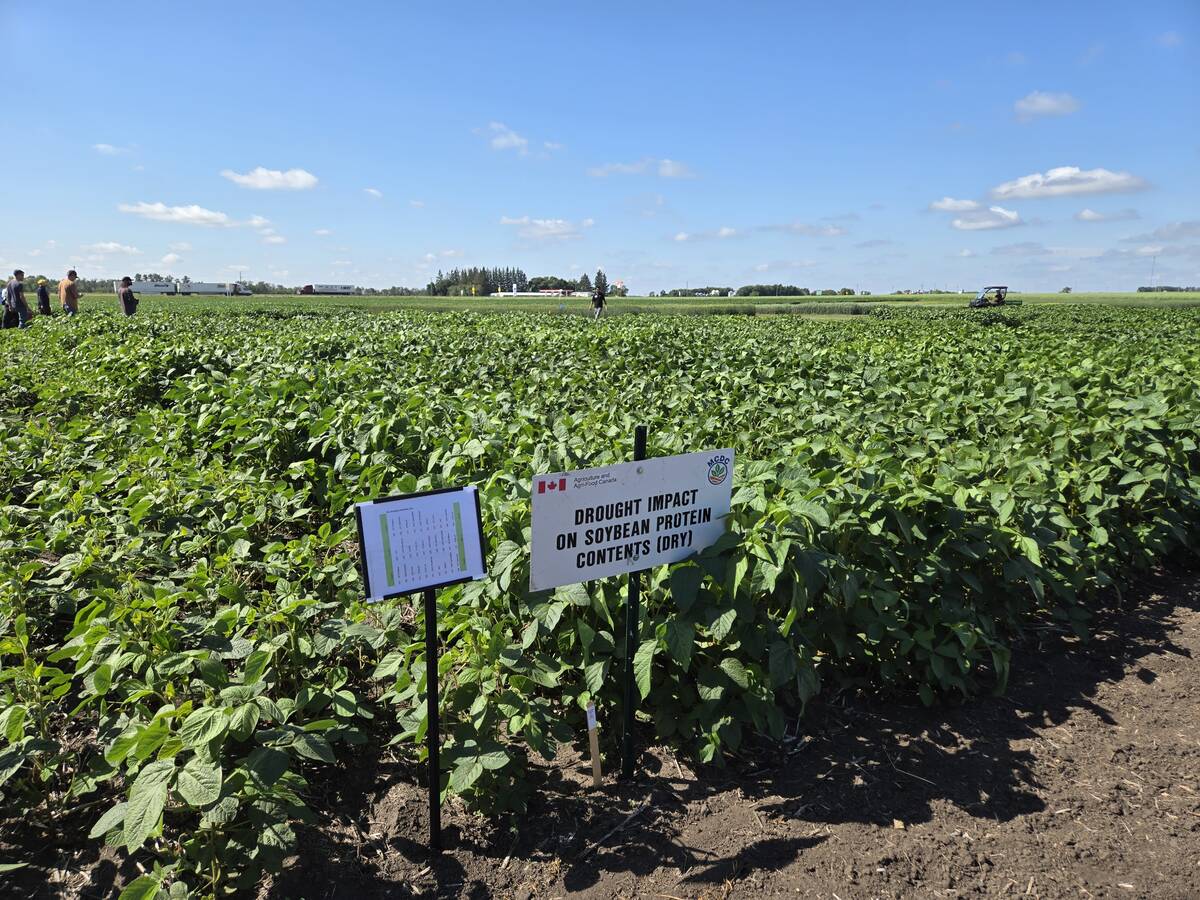BIRCH HILLS, Sask. Ñ Farmers are serious about their producer cars in Birch Hills.
Last fall, 20 of them chipped in and bought a three-bin loading facility from OmniTrax, the short-line railroad that several years ago took over the former Canadian National Railway line that runs through this district.
Robert Arnestad, a board member with the newly formed Birch Hills Producer Car Group, said farmers will likely use the facility to ship 100 cars of grain to the West Coast this year, mostly to Prince Rupert, B.C.
Read Also

Carberry field day looks for agriculture solutions
Manitoba farmers explored research solutions for resilient crops, perpetual agronomic issues and new kinds of agricultural products at a field day at the Manitoba Crop Diversification Centre in Carberry on Aug. 6.
That works out to a considerable investment in the community, considering that a farmer can save on average $800 a car by shipping grain in producer cars. On top of that, buying the facility means farmers no longer pay OmniTrax $200 a car to load grain, which increases the amount of money that stays in the community to $1,000 per car. Instead, shareholders now pay the producer car group $325 per car loaded and non-shareholders pay $350. As well, Arnestad and his brother Peter take care of ordering and loading cars, a service for which they charge $110 a car that comes out of the $325 fee.
“There’s $100,000 that stays in the community,” Arnestad said.
“Peter and I get it for loading and the producer car group gets it to expand our site and farmers get it.”
The producer car group was born out of CN’s decision to abandon the rail line that ran through Birch Hills. Rather than let that happen, the City of Prince Albert and the rural municipalities of Birch Hills and Prince Albert bought the line and turned it over to OmniTrax, the short-line railway company that also owns the line to the Port of Churchill on Hudson Bay.
To increase grain business on the line, OmniTrax built the loading facility in Birch Hills, which Arnestad said the firm had operated on a cost recovery basis.
“As it evolved, we thought it might be better if we owned it so that’s how we got to the state where we are now.”
Some of the money that was used to buy the facility came from a fund that local farmers had contributed to when they were trying to build a pea plant. The 20 shareholders in the producer car group invested $600 each, although those who had contributed to the pea plant project paid less.
Arnestad said it wasn’t complicated to set up the group. It is an incorporated entity with a five-member board that holds annual shareholder meetings. Shareholders can sell their investment in the group with the approval of the board.
Besides grain shipments to the West Coast, Arnestad said the facility will likely handle malting barley this year. He said Birch Hills area farmers have planted 1,500 acres of six-row malting barley that have been contracted through Anheuser-Busch in the United States. If it makes the grade, the barley will all be shipped to Fargo, North Dakota, by producer car.
As a result, Arnestad is convinced he and his neighbours have made a sound investment.
While unreliable rail service can be the weak link in the producer car chain, he said OmniTrax is doing a good job in Birch Hills.
He also believes producer cars will continue to make solid economic sense.
“I know there’s good money to be made by doing it. Some guys have concerns that they’re going to get downgraded when it unloads, but my theory is you get paid for what you loaded. You don’t get better than you got but you don’t get worse, either.”














